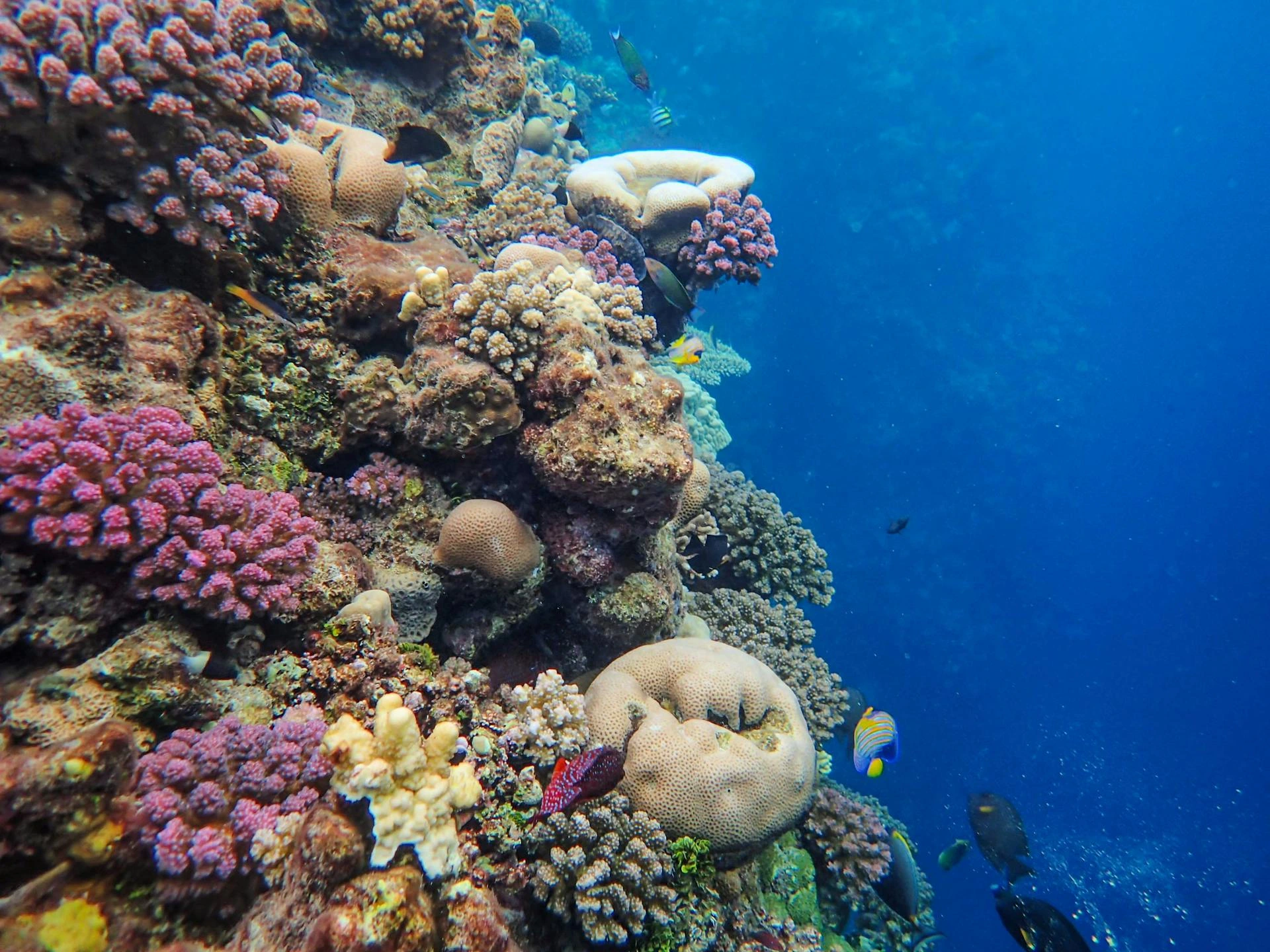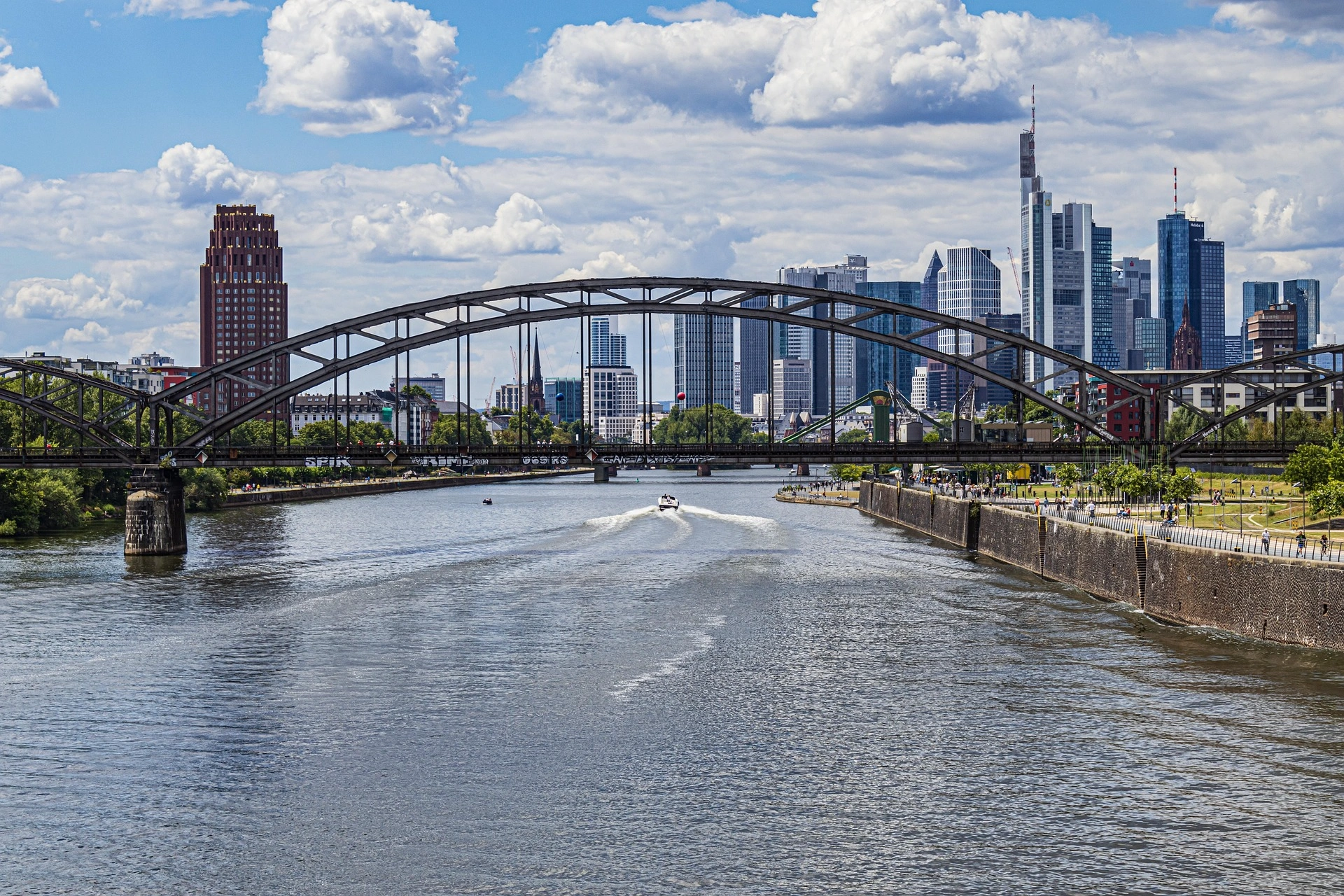Scientists are racing to protect sea coral with robots and AI as heatwaves devastate reefs

John E. Kaye
- Published
- News, Sustainability

An international symposium in Taiwan has unveiled how robots, AI and “super corals” are being deployed to fight unprecedented bleaching, with scientists warning that time is running out to save the world’s reefs
Scientists are turning to robots and artificial intelligence in a desperate bid to save the world’s coral reefs, after marine heatwaves left more than four-fifths of them bleached.
At an international symposium in Taiwan this week, experts from eight countries warned that time is running out for one of the planet’s richest ecosystems.
Since 2023, record sea temperatures have caused bleaching in 84% of reefs across 82 nations, threatening the survival of thousands of species of fish and marine life that depend on them.
The two-day Delta International Coral Restoration Symposium, held at the National Museum of Marine Biology and Aquarium in Pingtung, invited 12 top conservation institutions, including the International Union for Conservation of Nature (IUCN), the world’s largest nature conservation organisation, and the Mote Marine Laboratory in the United States, an international authority on marine ecology research.
In total, 14 scholars from eight countries shared in-depth information on the latest application trends such as AI coral survey mechanisms and large-area imaging of corals to build digital twins.
The seminar focused on practical applications and technology, and for the first time showcased the latest results of collaborative robot solutions in assisting the cultivation of heat-resistant corals, demonstrating the innovative practice of combining technology with ecological restoration.
Experts revealed that specially cultivated “super corals” in Taiwan have been able to survive water temperatures of 37°C, which is far hotter than most reefs could withstand in nature.
According to the organisers, the heat-resistant corals cultivated by Delta and the National Museum of Marine Biology and Aquarium can maintain 50% photosynthetic efficiency at temperatures as high as 37°C.
Shan-Shan Guo, Vice Chairman of the Delta Electronics Foundation, said: “Since 2023, ongoing global marine heatwaves have caused bleaching of 84% of coral reefs across 82 countries. Delta is committed to coral restoration through volunteers and its own technology, and has restored 10,000 corals to date.
“Over the next five years, we plan to conserve around 300 coral species, over half of those found in the Pacific Ocean, to help tackle severe marine ecological challenges. We are also actively connecting with conservation partners around the world.
“The first Delta international symposium aims to promote exchange and collaboration on technological applications, AI technology, and biodiversity quantification, injecting more innovative momentum into coral conservation.”
To speed up the search for more heat-tolerant species, researchers are deploying collaborative robots.
These machines can transfer fragile coral fragments between tanks while water temperatures are gradually raised, allowing scientists to test their limits far more quickly than by hand.
The process, known as “tank hopping”, makes it possible to spot genetic traits that give certain corals a better chance of survival.
Artificial intelligence is also being harnessed. Dr Jason Spadaro of the Mote Marine Laboratory, who attended the 2024 Convention on Biological Diversity meeting with the Delta Electronics Foundation, said AI can assist in coral surveys, such as determining coral cover in a habitat and suitability for transplantation.
Stuart Sandin of the University of California, San Diego, said using large-area imaging technology to collect large amounts of coral images and create 3D models will help scientists study coral ecological changes in a digital twin environment, providing a basis for conservation and restoration.
The symposium was co-hosted by the Taiwanese Coral Reef Society and the Delta Electronics Foundation, and attracted numerous internationally renowned conservation organisations.
Other participants included the Australian Institute of Marine Science (AIMS), James Cook University (JCU) Australia, the Scripps Institution of Oceanography, University of California San Diego (UCSD-SIO), the Tropical Marine Science Institute (TMSI) at the National University of Singapore, the Coral Triangle Center (CTC) in Indonesia, the Nature Conservation Society of Japan (NACS-J), and the Coral Conservation Society of Japan (also known as Sea Growth).
Taiwanese coral expert Chang-Feng Dai said the event marked a turning point for international cooperation.
“Delta is leveraging the power of its business and foundation to promote the use of technology in ecological conservation, connecting Taiwan’s research and restoration perspectives with the international community,” he said.
“This symposium, combining innovative technologies with practical conservation work, provides an excellent platform for international exchange. We hope it will foster deeper cross-border collaboration on coral restoration in the future.”
Main image: Francesco Ungaro/Pexels
RECENT ARTICLES
-
 WPSL targets £16m-plus in global sponsorship drive with five-year SGI partnership
WPSL targets £16m-plus in global sponsorship drive with five-year SGI partnership -
 Dubai office values reportedly double to AED 13.1bn amid supply shortfall
Dubai office values reportedly double to AED 13.1bn amid supply shortfall -
 €60m Lisbon golf-resort scheme tests depth of Portugal’s upper-tier housing demand
€60m Lisbon golf-resort scheme tests depth of Portugal’s upper-tier housing demand -
 2026 Winter Olympics close in Verona as Norway dominates medal table
2026 Winter Olympics close in Verona as Norway dominates medal table -
 Europe’s leading defence powers launch joint drone and autonomous systems programme
Europe’s leading defence powers launch joint drone and autonomous systems programme -
 Euro-zone business activity accelerates as manufacturing returns to expansion
Euro-zone business activity accelerates as manufacturing returns to expansion -
 Deepfake celebrity ads drive new wave of investment scams
Deepfake celebrity ads drive new wave of investment scams -
 WATCH: Red Bull pilot lands plane on moving freight train in aviation first
WATCH: Red Bull pilot lands plane on moving freight train in aviation first -
 Europe eyes Australia-style social media crackdown for children
Europe eyes Australia-style social media crackdown for children -
 These European hotels have just been named Five-Star in Forbes Travel Guide’s 2026 awards
These European hotels have just been named Five-Star in Forbes Travel Guide’s 2026 awards -
 McDonald’s Valentine’s ‘McNugget Caviar’ giveaway sells out within minutes
McDonald’s Valentine’s ‘McNugget Caviar’ giveaway sells out within minutes -
 Europe opens NanoIC pilot line to design the computer chips of the 2030s
Europe opens NanoIC pilot line to design the computer chips of the 2030s -
 Zanzibar’s tourism boom ‘exposes new investment opportunities beyond hotels’
Zanzibar’s tourism boom ‘exposes new investment opportunities beyond hotels’ -
 Gen Z set to make up 34% of global workforce by 2034, new report says
Gen Z set to make up 34% of global workforce by 2034, new report says -
 The ideas and discoveries reshaping our future: Science Matters Volume 3, out now
The ideas and discoveries reshaping our future: Science Matters Volume 3, out now -
 Lasers finally unlock mystery of Charles Darwin’s specimen jars
Lasers finally unlock mystery of Charles Darwin’s specimen jars -
 Strong ESG records help firms take R&D global, study finds
Strong ESG records help firms take R&D global, study finds -
 European Commission issues new cancer prevention guidance as EU records 2.7m cases in a year
European Commission issues new cancer prevention guidance as EU records 2.7m cases in a year -
 Artemis II set to carry astronauts around the Moon for first time in 50 years
Artemis II set to carry astronauts around the Moon for first time in 50 years -
 Meet the AI-powered robot that can sort, load and run your laundry on its own
Meet the AI-powered robot that can sort, load and run your laundry on its own -
 Wingsuit skydivers blast through world’s tallest hotel at 124mph in Dubai stunt
Wingsuit skydivers blast through world’s tallest hotel at 124mph in Dubai stunt -
 Centrum Air to launch first European route with Tashkent–Frankfurt flights
Centrum Air to launch first European route with Tashkent–Frankfurt flights -
 UK organisations still falling short on GDPR compliance, benchmark report finds
UK organisations still falling short on GDPR compliance, benchmark report finds -
 Stanley Johnson appears on Ugandan national television during visit highlighting wildlife and conservation ties
Stanley Johnson appears on Ugandan national television during visit highlighting wildlife and conservation ties -
 Anniversary marks first civilian voyage to Antarctica 60 years ago
Anniversary marks first civilian voyage to Antarctica 60 years ago



























